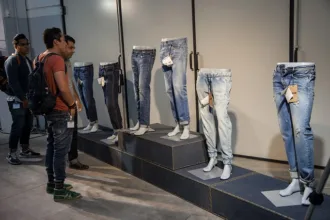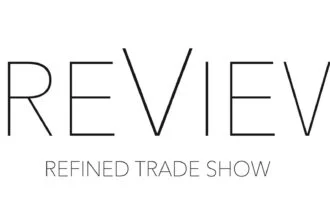The 10th edition of Apparel Textile Sourcing Canada (ATSC) 2025 is set to take place in two key Canadian cities—Montreal on Sept. 26, in line with Montreal Fashion Week, and Toronto from Sept. 29 to Oct. 1—bringing global manufacturers face to face with Canadian retailers and brands amid evolving trade dynamics.
More than 200 international manufacturers from countries such as Bangladesh, China, Canada, India, Pakistan, Türkiye, Vietnam, Ukraine, and the U.S. will present their latest apparel and textile collections, showcasing diversification, low minimum order quantities, and competitive pricing. Free registration is currently available for both editions.
The expo will address key themes impacting Canada’s fashion industry: tariffs, free trade updates, sustainability, supply-chain diversification, and inflation pressures.
Bob Kirke, executive director of the Canadian Apparel Federation, will deliver the “State of the Industry” keynote and moderate a panel on North American trade dynamics, joined by Julie Hughes, president of the U.S. Fashion Industry Association (USFIA).
Compliance and policy updates on shifting U.S. tariffs and the implications for Canadian importers and foreign manufacturers will be presented by the Canadian Apparel Federation.
Hughes said the USFIA will share insights on U.S. policy and ways to support “Fashion Made Possible by Global Trade.”
Trend and strategy sessions will be led by Peclers Paris, a leading trend forecasting agency offering daily presentations on colour forecasting, brand strategy, and the 2026 lookbook.
ATSC Montreal will be integrated into Montreal Fashion Week through a collaboration with mmode, whose executive manager Mathieu St-Arnaud Lavoie said the event “brings a dynamic and valuable dimension to our city’s fashion and textile landscape” amid shifting geopolitical contexts.
Organisers emphasize that ATSC has emerged as “the only credible venue in Canada for Canadian brands and retailers to meet directly with foreign vendors,” especially as supply chains face uncertainty from trade tariffs and inflation.
Tariff backdrop: The event comes as Canada confronts instability in North American trade, with U.S. reciprocal tariffs affecting Canadian imports since early 2025. Though many goods enjoy USMCA/CUSMA exemptions, recent moves to end de minimis thresholds and impose new baseline tariffs (around 15%) from the U.S. have kept exporters on alert. While CUSMA compliance shields much apparel trade, the broader tariff environment continues to impact cost and sourcing strategies.
Experts say these events provide a vital platform for Canadian brands exploring near-shoring, supply chain resilience, and trade policy navigation in response to inflation and geopolitical pressures.











